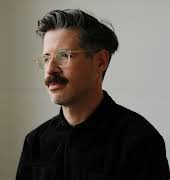
Sponsored
‘I changed my perception of failure and look at it as a chance for growth’ – Caroline Foran
Sponsored By

By Rosie McMeel
14th May 2019
14th May 2019
Sponsored By

For internationally acclaimed author and podcaster Caroline Foran “Do What You Can’t” is much more than a slogan. It is a call to arms and an urge to ignore what others say “can’t” be done. She’s the living proof. Having suffered anxiety and crippling panic attacks, Caroline Foran shared her experiences over social media, much to the dismay of some well-meaning friends and family. “It was 2014 and very few people were willing to appear vulnerable, but for me it was a coping mechanism.” A hugely positive response from others showed Caroline she wasn’t alone and more importantly, she had articulated what many couldn’t. Spotting her talent, she was offered a book deal and the number one bestseller Owning It followed, chronicling her experiences with anxiety and offering her ‘Assess and Address Approach’. It has just launched in US and is now a highly successful podcast series. Her second book The Confidence Kit quickly followed and has also become a bestseller. And if that wasn’t enough, she’s also the co-founder of Gaff Interiors, an online interiors platform for those with great style but limited budgets. Despite her ongoing battle with anxiety, she uses a healthy dose of fear to propel her into situations that take her further out of her comfort zone.
Congratulations on your recent US book tour. Have you recovered?
“Right now I’m a little bit knackered from everything because I’ve been building up to America for so long. You’re in pitch mode all the time trying to get people to see your value. It can be very draining at times. But I decided to give it a go. While I was there having these meetings I was constantly questioning myself, wondering what I was doing there – feeling silly for thinking I could break America, and then at other moments someone would respond to what I was saying and I’d tell myself I can do this! It’s a constant yoyo. You just need a tiny bit of encouragement to believe in yourself again. I suppose if it was so easy everyone would do it.”
You’ve written extensively on your personal battle with anxiety, how do you cope with that when it comes to putting yourself out there professionally?
“I’ve gotten really comfortable with the idea of failure. I’m not as afraid of failure as I used to be. I think to move forward and allow yourself to be vulnerable means you have to be open to the idea that things might not work out and you have to be comfortable with the idea of failure. To do that you have to have a healthy perception of what failure is. When I went to America, I couldn’t look at it as either a failure or a success, it’s about starting a momentum.”

It’s refreshing to see you posting so honestly on social media. Is that important to you?
“Lots of people only post when something good happens. We always see these success stories, but people don’t share the joureny and they don’t share them because they don’t happen overnight. They worry about in case they fail, but I know if I fail, that is isn’t a reflection on me. I know my worth and I know my books are good. I believe in them. I know they’ve already connected with people on a human level who are going through a hard time, and that for me is as good as it gets. I think it’s important to document that. If things don’t work out, you learn from it. I changed my perception of failure and look it as a chance for feedback and growth. Because I am willing to ask, ‘what’s the worst that can happen?’, I’ve put myself in lots of situations where I’m out of my comfort zone and it’s ended up working out well. You get momentum then and it propels you to the next thing.”
Why do you think we are so afraid to fail?
“There’s a shame around things that don’t work out. It’s a very old, Irish thing to not show your vulnerability. I didn’t plan it, but my whole career has been based on my willingness to be vulnerable and that has turned out to be my greatest strength and the path to my success. I find it uncomfortable doing things that suggest I’ve made it, because when the book came out, I thought people would see me as an expert on anxiety and must have it all figured out, but that’s not the case. I have days when my confidence is on the floor and I have days where I feel really empowered and know I have enough experience behind me to feel I can do something. At the end of the first book, Owning It, I wrote ‘some days you’ll feel like you’re owning it and other days you’ll feel like you’re just borrowing it or renting it,’ and that’s exactly how I feel.”
Did you have anyone try to dissuade you from this path?
“Even before I wrote anything and was just going through what I was going through, I would post it to social media, and some of my friends and family questioned if I should put that out there. It was 2014 and very few people were willing to appear vulnerable and I guess it came from a point of needing to share how I was feeling. It was almost like a coping mechanism to share stuff, and it always has been. And then, what I didn’t expect was that it not just helped me, but so many people responded because they were feeling silly for feeling that way and now they knew they weren’t alone. Now, no one would question my posting, I’ve basically made a career out of it.”
How do you use fear as a motivator?
“For me feeling fear points me in the direction of the things that are really important to me. And if I didn’t feel a little afraid by something I’d question how much I cared. It helps me show and dress up and prepare better than I would have. It motivates me as a form of call to action. I am afraid every time I am asked to do public speaking, and think maybe I shouldn’t do it anymore, but no, I can still have success in spite of my fear and anxiety. I don’t have to wait until I have it all figured out. Nothing intimidates me more than someone saying they’re fearless because that is an anomaly. Why are we feeling we need to be fearless? Just because you do feel fear doesn’t mean you’re any less capable.”
What’s next for you?
“I have to start writing my third book and I’ve just signed my contract so no pressure. I’m hoping to do more talks. Snapchat in America invited me to LA to talk at a conference on emotional intelligence, but I’m not sure the dates will work out. Either way, I take that as a massive vote of confidence. So I’m hoping to do more talks outside of Ireland and build up my profile in the UK and America. I am always working on the podcast (Owning It). That’s had a phenomenal response so far and I think sometimes if you’re anxious reading a book can be overwhelming, so it’s great you can have that in your ears. And I want to keep writing and innovating. Maybe a fourth book, but we’ll see. I won’t put something out there just because I can.”
As a global leader in technology, Samsung continues to defy and surpass expectations. “Do What You Can’t” is a campaign driven by Samsung and based around developing products, innovation and experiences that can help empower people to defy barriers, obstacles, and do things they did not think were possible. It is so much more than a slogan and we at IMAGE encourage and dare you to #DoWhatYouCan’t… because we believe you can!























